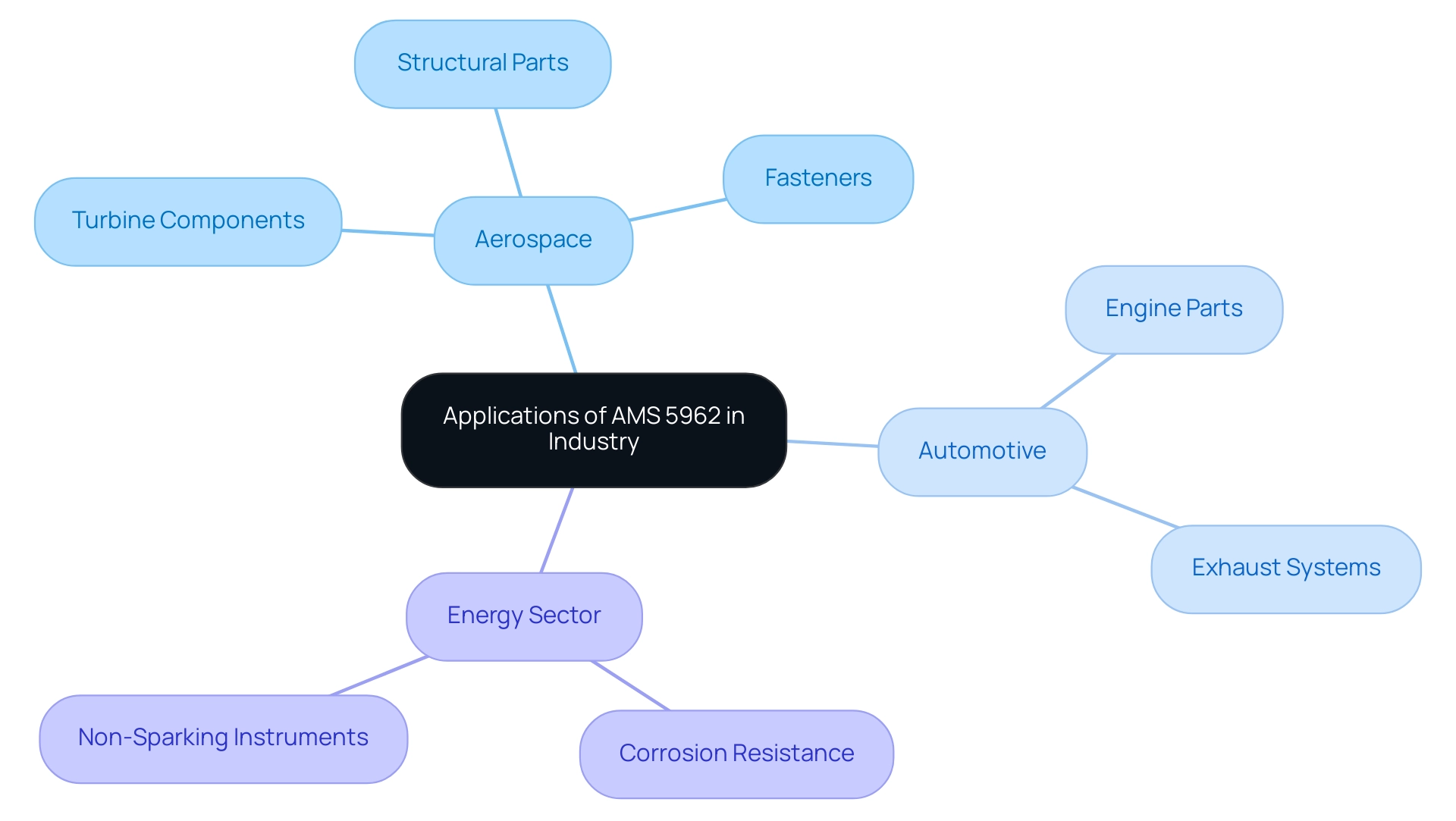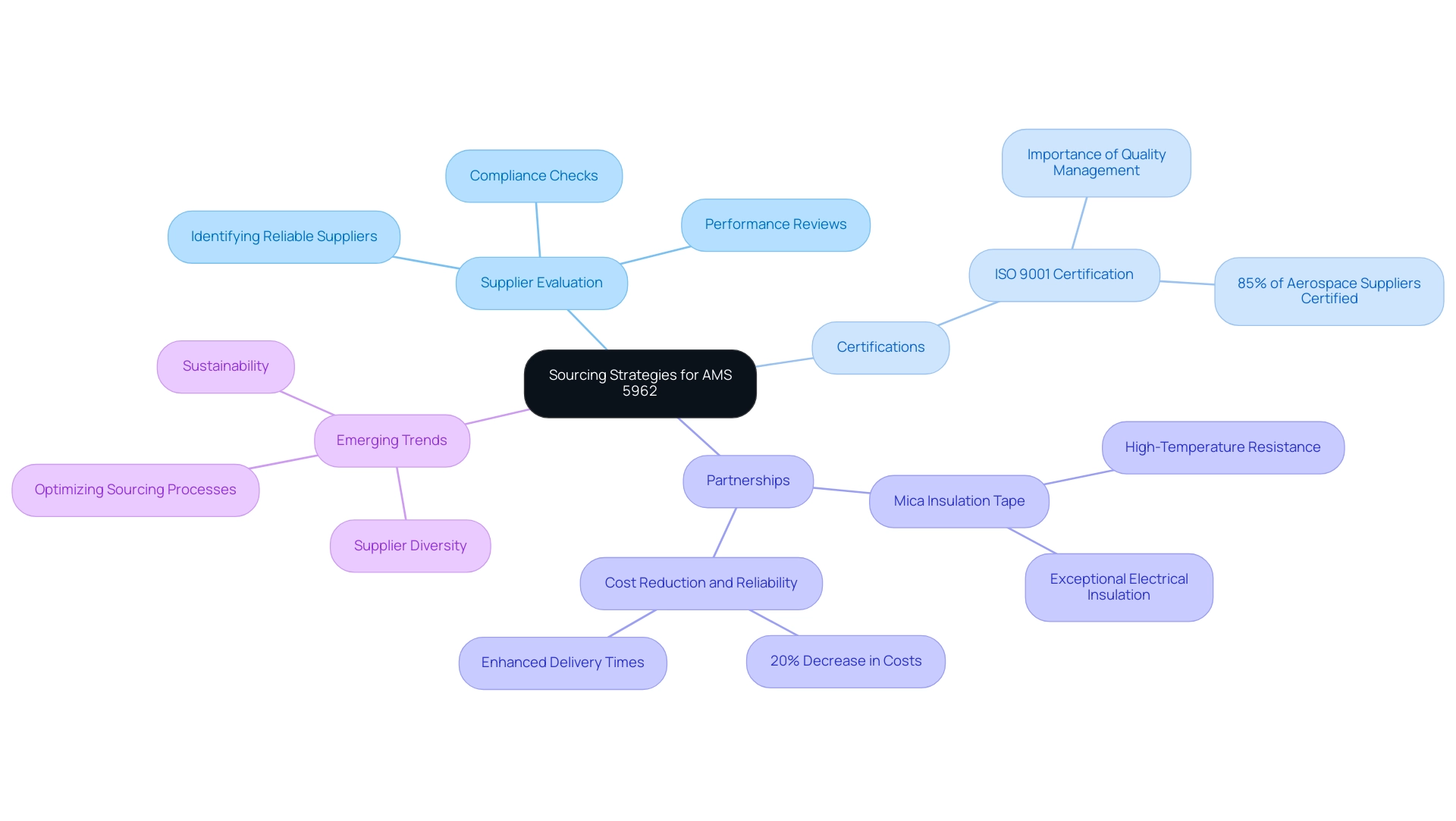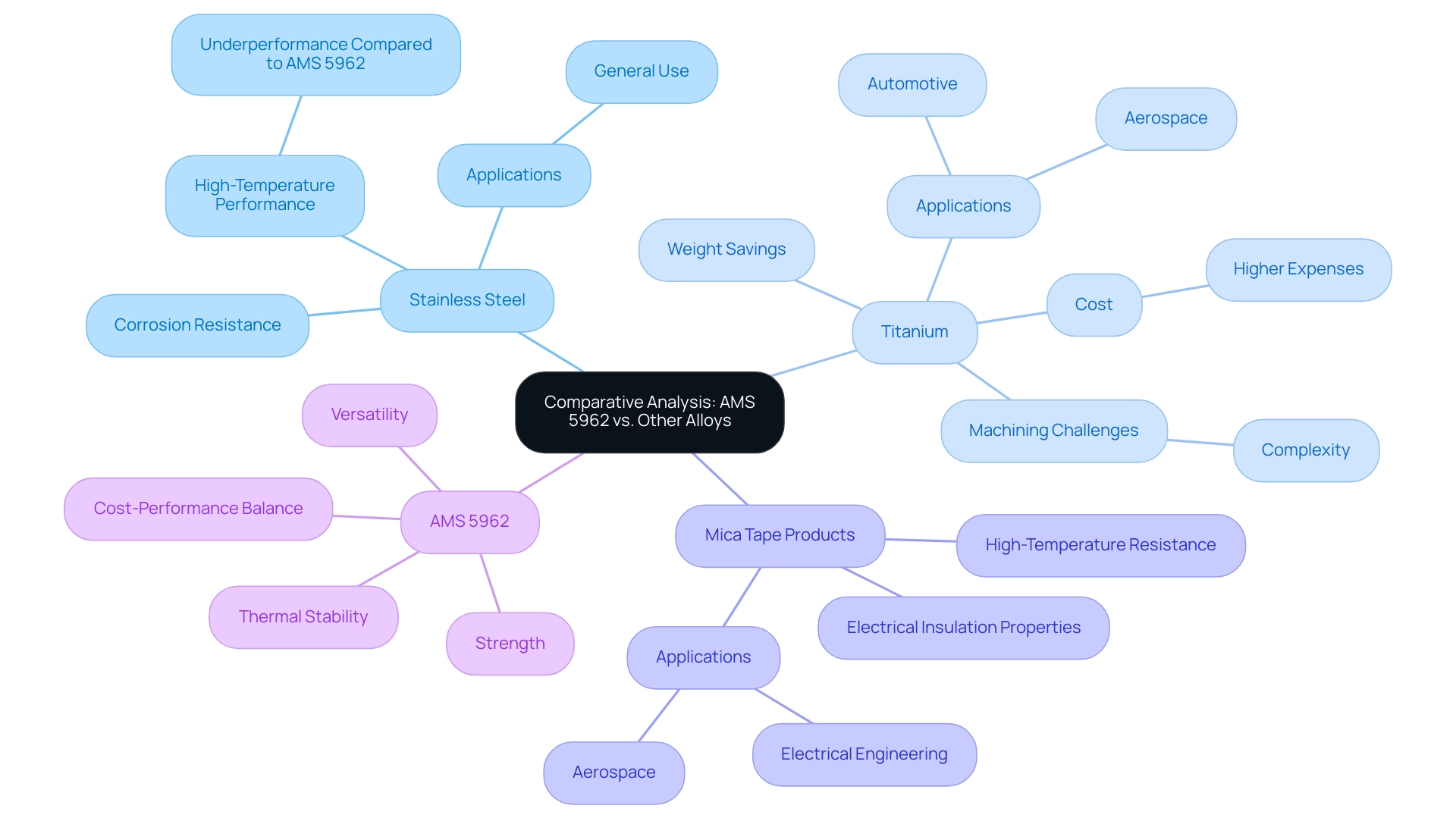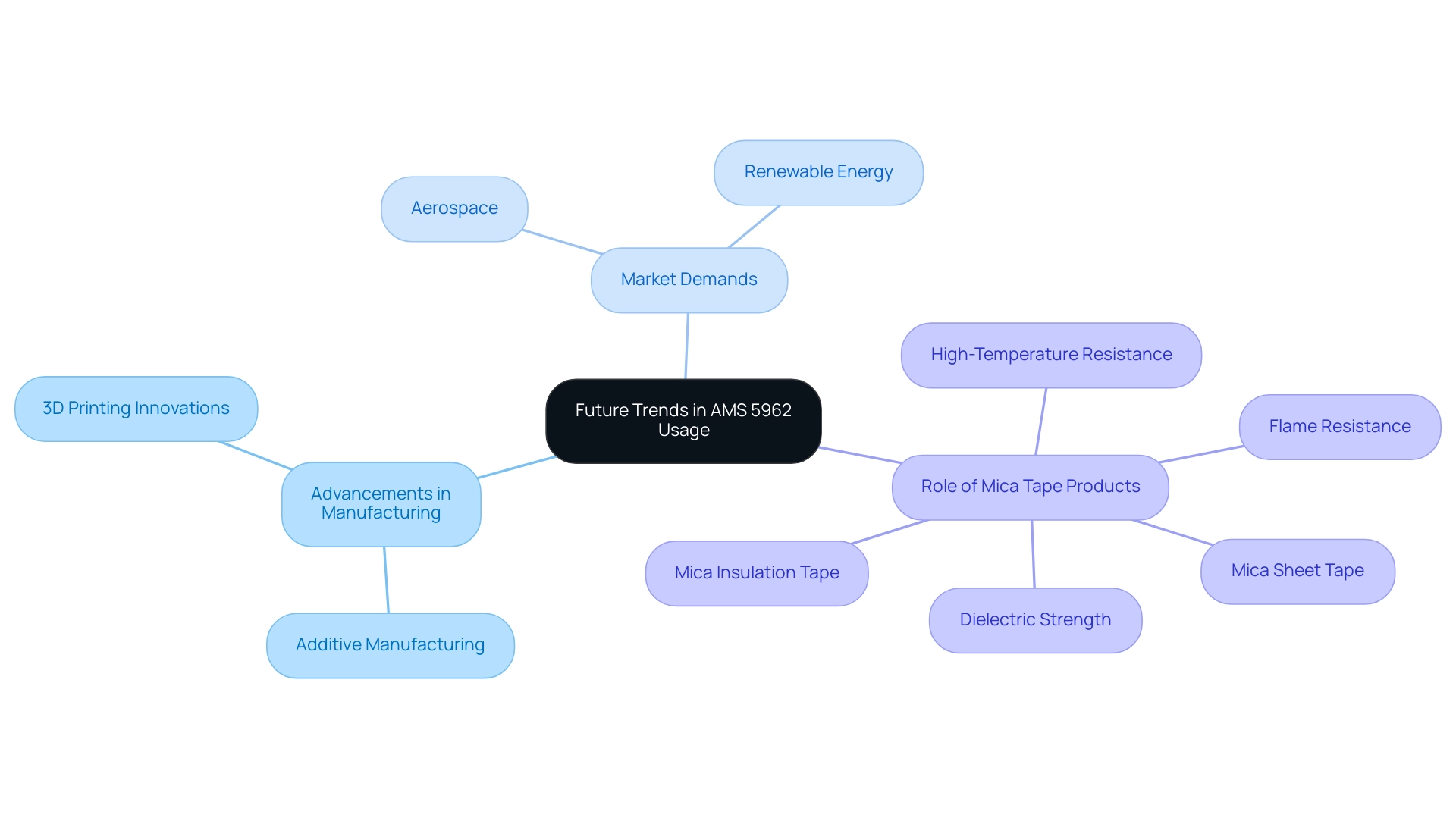Blogs

Understanding AMS 5962: A Complete Tutorial on Properties and Applications
Introduction
AMS 5962, commonly known as Inconel® 718, is a cornerstone in the realm of nickel-based alloys, celebrated for its exceptional high-temperature strength and oxidation resistance. This alloy is meticulously engineered to thrive in extreme environments, making it indispensable in critical sectors such as aerospace, where components are routinely subjected to intense thermal and mechanical stress. With a chemical composition that includes nickel, chromium, iron, and molybdenum, AMS 5962 offers a unique combination of durability and performance, essential for meeting stringent industry standards.
For procurement managers, understanding the distinctive properties and applications of AMS 5962 is vital for sourcing materials that enhance product reliability and operational efficiency. As industries evolve, insights into innovative sourcing strategies and emerging trends will further empower professionals to navigate the complexities of material procurement, ensuring they remain at the forefront of technological advancements.
Introduction to AMS 5962: Significance and Unique Properties
AMS 5962, widely recognized as Inconel® 718, stands out in the realm of nickel-based alloys due to its remarkable high-temperature strength and resistance to oxidation. This alloy is designed to withstand extreme environments, making it an ideal choice for essential uses, particularly in aerospace where components are often exposed to high-temperature air or combustion gases. As noted in industry insights, ‘This is particularly important in applications exposed to high-temperature air or combustion gases, such as aircraft engines.’
The exceptional weldability and fabrication characteristics of AMS 5962 further enhance its suitability for high-stress scenarios, enabling seamless integration into complex assemblies. The alloy’s resilience can be attributed to its unique chemical composition, which includes:
- Nickel
- Chromium
- Iron
- Molybdenum
Each element plays a pivotal role in its overall durability and performance. For procurement professionals, understanding these attributes is essential, particularly when sourcing resources that adhere to stringent industry standards such as ASME SB 435 and GE Aviation specifications.
A case study on industry standards compliance demonstrates that Alloy X conforms to various industry standards, reinforcing its reliability in essential uses. Additionally, insights into soft magnetic iron nickel alloys reveal their superior corrosion resistance, excellent mechanical properties, and high-temperature stability, which are vital in aggressive environments. The precision manufacturing of these alloys ensures they meet the most demanding requirements.
Furthermore, the latest offerings in mica tape products ensure high-temperature resistance and electrical insulation, making them indispensable in various applications, from industrial machinery to aerospace, providing procurement managers with a comprehensive overview of high-quality alternatives. Recent news on packaging options, which include spools and reels ranging from less than 1 lb to 1,000 lbs, may also provide procurement managers with valuable insights into logistics and sourcing.

Applications of AMS 5962 in Industry: Where and How It’s Used
AMS is widely utilized in the aerospace and automotive sectors because of its high-performance traits. In aerospace, it is utilized for manufacturing turbine components, structural parts, and fasteners that must endure extreme temperatures and pressures. The automotive industry gains from AMS in the manufacturing of high-performance engine parts and exhaust systems that need substances capable of enduring severe operating conditions.
Furthermore, this alloy is increasingly being utilized in energy sectors, particularly in the oil and gas industry, where its resistance to corrosion and high strength is critical. In explosive settings, the use of non-sparking instruments made from substances like AMS is crucial to avert ignitions.
Grasping these uses enables procurement managers to make educated choices regarding sourcing AMS and acknowledging its worth in improving product performance and dependability. Additionally, it is important to consider suppliers and manufacturers of electrical insulation and high-temperature materials, as they play a crucial role in providing the necessary tools and components for safe operations in such environments.

Mechanical Properties of AMS 5962: Understanding Performance Metrics
AMS is acknowledged for its exceptional mechanical characteristics, rendering it highly appropriate for challenging uses. This nickel-based alloy exhibits a tensile strength of approximately 1300 MPa (190 ksi) and a yield strength around 1000 MPa (145 ksi) at room temperature. Notably, AMS maintains exceptional strength even at elevated temperatures, with a yield strength that remains robust at 650°C (1200°F). This characteristic positions it favorably among peer alloys, particularly in environments that require resilience to thermal stress.
Furthermore, Mica Tape products, created for high-temperature durability and electrical insulation, enhance the features of AMS 5962, providing exceptional insulation characteristics vital for uses in electrical engineering. These tapes offer outstanding flame resistance and dielectric strength, which are essential for ensuring safety in electrical uses.
When compared to other nickel-based alloys, such as Inconel 718, AMS demonstrates excellent ductility and a more advantageous strength-to-weight ratio, which can be crucial for particular uses. Furthermore, the alloy’s good ductility facilitates the fabrication of complex shapes and designs without compromising structural integrity, an essential consideration in procurement decisions.
Recent studies have confirmed these mechanical properties and offered insights into the tensile and yield strengths of Inconel 718, indicating that while Inconel 718 has a tensile strength of about 1240 MPa (180 ksi) and yield strength of approximately 1030 MPa (150 ksi), AMS provides improved performance in specific high-temperature applications.
In comparison, Mica Tape products stand out against alternative insulation options due to their robust performance characteristics, making them a reliable choice for critical electrical insulation. Grasping these mechanical characteristics, along with the advantages of Mica Tape products for essential electrical insulation, is crucial for guaranteeing that components made from AMS can withstand the operational requirements imposed on them. Additionally, considering the pricing of these resources is crucial for procurement managers when evaluating options.
Sourcing Strategies for AMS 5962: Best Practices
When acquiring AMS 5962, it is crucial for procurement managers to begin by identifying reliable suppliers with a demonstrated history in high-performance alloys and electrical insulation components. A critical component of supplier evaluation is their certifications; for instance, ISO 9001 certification is pivotal as it demonstrates a commitment to quality management principles. In fact, recent statistics reveal that 85% of aerospace suppliers hold ISO 9001 certification, underscoring the importance of quality assurance in this sector.
Furthermore, establishing long-term partnerships with suppliers, such as those providing Mica Insulation Tape, Mica Tape for Electrical, and Mica Sheet Tape, known for their high-temperature resistance and exceptional electrical insulation properties, can yield advantages such as competitive pricing and enhanced reliability in supply chains. For instance, a case study concerning a prominent aerospace manufacturer showed that by working closely with certified suppliers, they accomplished a 20% decrease in costs while enhancing delivery times.
Regular performance reviews and compliance checks against industry standards are crucial for maintaining quality assurance. As the landscape of procurement strategies evolves in 2024, trends such as increased emphasis on sustainability and supplier diversity are emerging. Implementing these best practices, particularly by sourcing high-quality materials like Insulating Mica Tapes, will empower procurement professionals to optimize their sourcing processes, ensuring that the AMS acquired not only meets specifications but also aligns with the latest trends in material procurement.

Comparative Analysis: AMS 5962 vs. Other Alloys
When conducting a comparative analysis of AMS with other alloys such as stainless steel and titanium, several critical factors must be considered.
- Stainless steel is widely acknowledged for its strong resistance to corrosion; however, it typically underperforms in high-temperature scenarios compared to AMS 5962, which thrives in settings where both strength and thermal stability are essential.
- Additionally, mica tape products, recognized for their high-temperature resistance, exceptional electrical insulation properties, dielectric strength, and flame resistance, are increasingly being utilized in essential uses. These features make mica tape a reliable solution alongside AMS 5962 in industries like electrical engineering and aerospace, where safety and performance are paramount.
- Conversely, titanium is valued for its lightweight characteristics, making it an appealing choice for scenarios where weight savings are essential. Recent news emphasizes that in high-performance fields, titanium’s benefits are being increasingly acknowledged, especially in aerospace and automotive sectors where weight reduction is essential.
- However, procurement managers should be aware that titanium often incurs higher expenses and presents more complex machining challenges.
- In contrast, AMS offers a strategic equilibrium among cost, performance, and versatility, establishing itself as a favored option for uses requiring exceptional strength and resistance to extreme conditions.
- As we approach 2024, the comparative analysis of AMS with other alloys indicates that it stays competitive, especially against new substances that seek to provide similar characteristics at reduced costs.
These factors are vital for procurement experts responsible for choosing the most appropriate materials for their specific uses, especially when assessing the advantages of incorporating mica tape products into their insulation solutions, particularly in high-demand industries like aerospace and automotive.

Future Trends in AMS 5962 Usage: Innovations and Developments
The future of AMS seems promising, especially with advancements in manufacturing technologies and increased demand in sectors such as aerospace and renewable energy. Innovations in additive manufacturing, or 3D printing, are paving the way for new uses of AMS, allowing for more intricate shapes that were previously challenging to accomplish. Additionally, as industries push for lighter and more efficient materials, the demand for high-performance alloys like AMS 5962 is expected to rise.
In this context, Mica Tape products, including Mica Insulation Tape and Mica Sheet Tape, known for their high-temperature resistance, flame resistance, and dielectric strength, play a significant role in electrical insulation applications. Suppliers and manufacturers of Mica Tape, alongside electrical insulation papers and high-temperature fabrics, are crucial to meeting the evolving demands of these industries.
Procurement managers should stay informed about these trends and the capabilities of various Mica Tape products to adapt their sourcing strategies and capitalize on new opportunities in the market.

Conclusion
AMS 5962, or Inconel® 718, stands out as a vital material in the aerospace and automotive industries due to its exceptional high-temperature strength and oxidation resistance. Its unique chemical composition and mechanical properties make it indispensable for applications that demand durability under extreme conditions. Understanding the alloy’s applications, from turbine components to high-performance engine parts, enables procurement managers to make informed decisions that enhance product reliability and performance.
As procurement strategies evolve, the emphasis on sourcing materials that meet stringent industry standards becomes increasingly important. Identifying reputable suppliers and fostering long-term partnerships can lead to significant cost reductions and improved supply chain reliability. The growing trends in sustainability and supplier diversity further underscore the need for procurement professionals to adapt their strategies to remain competitive in the marketplace.
Looking ahead, the future of AMS 5962 is bright, with innovations in manufacturing technologies and rising demands in sectors such as aerospace and renewable energy. The integration of Mica Tape products alongside AMS 5962 offers enhanced performance in critical applications, positioning procurement managers to leverage these developments effectively. By staying abreast of market trends and advancements, professionals can ensure they are well-equipped to source high-quality materials that meet the evolving needs of their industries.




